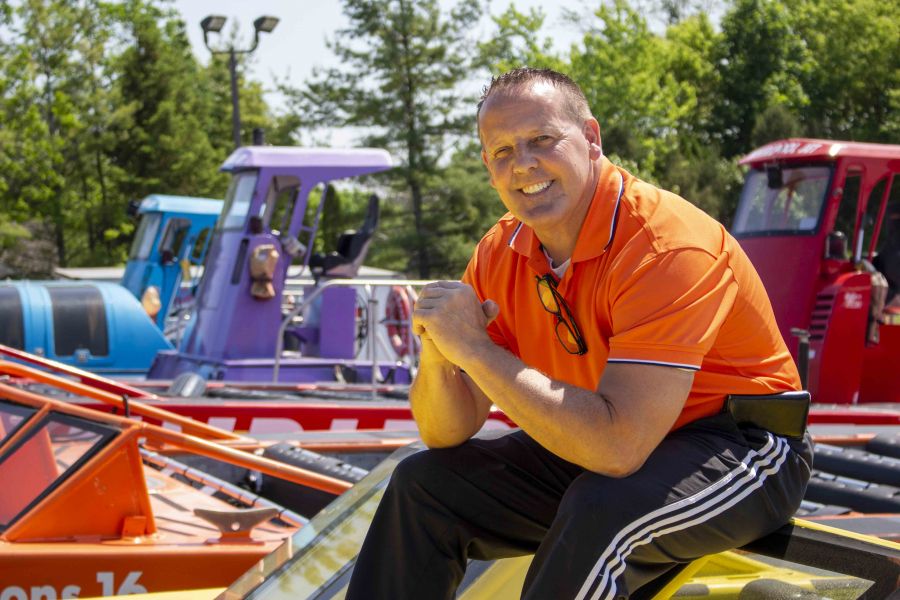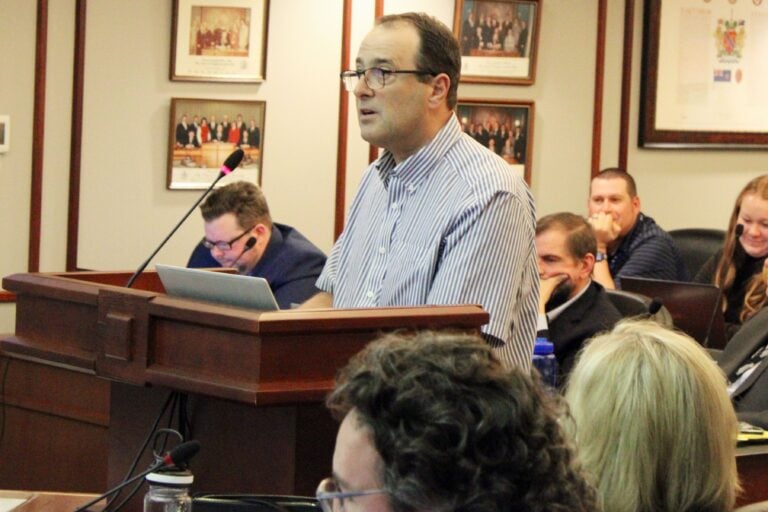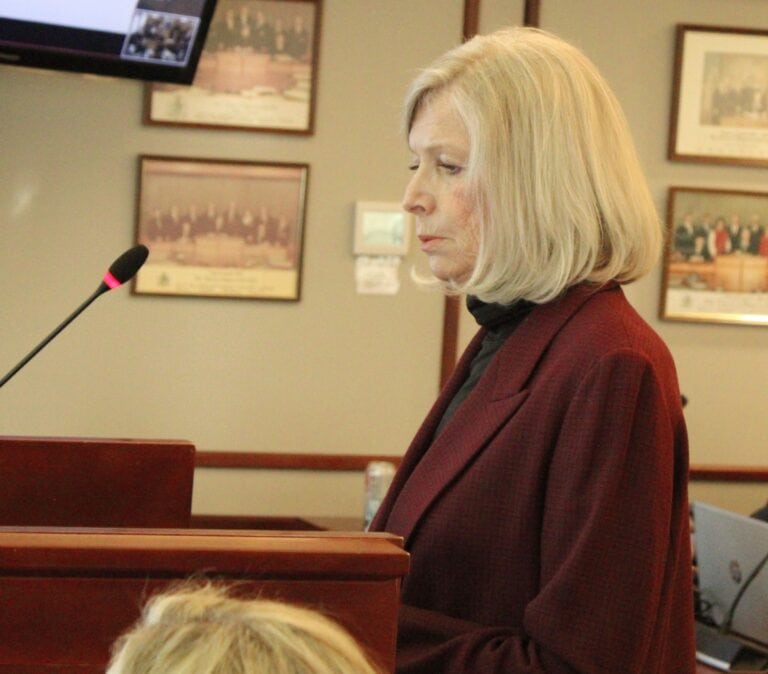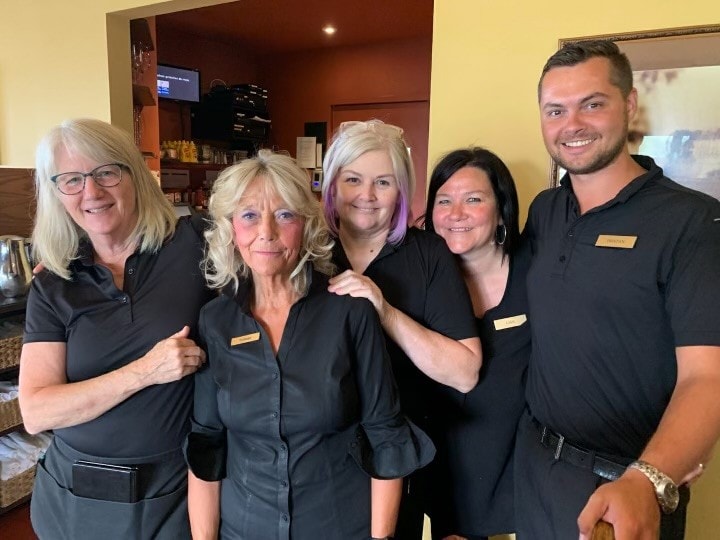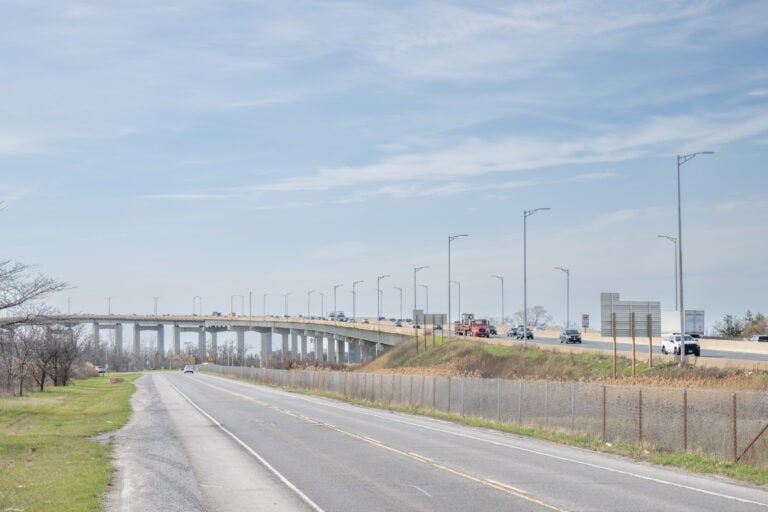While the Whirlpool jet boats are literally built for turbulent waters, the COVID-19 pandemic has the company worried about keeping its head above water.
John Kinney, owner of Whirlpool Jet Boat Tours, said the global pandemic has caused a major rift in the company’s season, and they’re still not permitted to open until July at the earliest.
“Transport Canada unilaterally suspended the operating certificate of every passenger vessel in Canada and at present they’re contemplating reinstating our licences as of July 1.”
He said even with the plans to open in July, there are major risks that come with that.
One of the problems with getting back to business is the sheer cost of putting the boats in the water, which happened Wednesday.
Between trucking boats from Virgil to Queenston, hiring expensive cranes to get the boats and docks into the water, annual certifications from Transport Canada and other annual fees like radio licences, raft recertification and training, it leaves the company vulnerable, should the government tighten emergency protocols again.
“Our fear this year is that we go through all those things, and let’s say as of July 1 we are operational, but let’s say two weeks later COVID cases spike, and they come back and say, ‘Oh, sorry, boys, you know, just not working out the way that we hoped. So, shut her down again,’ and then we have to incur all of those costs again to decommission ourselves. And yet, we’ve not only not had the April, May, June revenue, but then we don’t have anything to go along with it.”
On top of the already long list of challenges, new sanitization measures are going to be tougher than ever. For a passenger vessel company, it means new technology to clean boats quickly, cleaning lifejackets, and screening visitors for potential symptoms of the virus.
“We’ve obviously had to adopt a complete COVID protocol that really starts when somebody arrives at our property,” Kinney said.
The process starts on land, where they must social distance for registration and get suited up in lifejackets, and continues to the boats, which must be sanitized.
For the boats, he said the company is investing in “fogging equipment” which can cover the entire craft.
“This is something that you’re going to see a lot in hallways and elevators and places where you can’t physically wipe. You know, a 54-passenger jet boat, you can’t wipe every one of those surfaces down in between departures. So that’s why we’ve adopted this fogging equipment,” Kinney said.
“The list goes on and on. We are working with the local health department to ensure that any water droplets that go onto a person, that there’s protective equipment issued between face shields and splash suits that would prevent COVID transmission. Obviously something we’ve never had to deal with in the last 29 years,” Kinney said.
He pointed out “all this does is add to costs.”
“None of this goes to the revenue side whatsoever. And so we’re purchasing fogging equipment, which puts a sanitizing fogging solution over the boats and over the equipment and whatnot.”
Kinney said even when the tour company is open again, global travel is going to have a severe impact on it, as 90 per cent of business comes from the Untied States, Europe and Asia.
“We will not be able to do what we do based on domestic business from Ontario and the rest of Canada,” he said. “So, it’s a huge, huge challenge.”
Right now there are no federal incentives specific to passenger vessel operators.
“This includes ourselves, includes Hornblower, the dinner cruise boats in Toronto, ferry boats that take you out to Toronto Island, B.C. ferries — it’s all Transport Canada. And at this moment in time, with the exception of the CEWS program for wage subsidies and those programs, which, of course we’ve taken advantage of, there hasn’t been any specific program from the federal government,” he said.
“Obviously Transport Canada is a federal agency, not provincial. But there hasn’t been anything where it says, ‘Hey, since we shut you down, and haven’t told you when you’re going to be able to start again, we’re going to do something for you to cover your costs.’ No, that has not happened.”
He said he “wouldn’t say no” to some assistance for tour operators.
“If Transport Canada or the federal government wanted to throw some cash our way here, goodness knows, I wouldn’t argue with that.”
What he’s more concerned about is the classification of a non-essential business.
“It’s not essential to everyone except the people that get their paycheque there,” he said.
“But if you’re a florist and that’s how you pay your mortgage and put your kids through university, it’s a pretty damn essential business.”
He points out his company usually hires about 125 people during a season, with 22 full-time employees.
“We have a wide variety of employees, from well beyond boat captains and crew members that operate the boats. We have diesel mechanics, we have aluminum welders, we have sales and marketing people, we have accountants, we have guest services people that manage our reservation systems,” Kinney said.
And to them, their work is essential, “because it’s essential for them to support themselves and their families.”
He said it’s still unclear whether they will be able to open for the season.
“We really have a very truncated season here.” so if Transport Canada pushes the reopening to mid-July, “now we’re really compromised and we really are gonna have to think long and hard about whether or not it does justify even attempting to operate.”
He said no matter what happens, it’s going to be a long recovery — longer than in other years when things changed dramatically in the world, such as after 9/11.
“And even as completely world changing as 9/11 was, the 2002 tourism season was a fantastic year … because travel wasn’t impacted, the way we do business wasn’t impacted, and that recovery was able to happen quickly. This is not going to be that way. This is going to be a very long recovery.”
Despite the challenges, Kinney says he thinks the company will survive.
“We think we’re going to make it through this but, you know, we — nobody — really knows,” he said.
“Like so many other businesses, it’s just so, so challenging to operate.”



